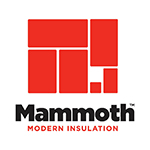Insulation Requirements
Legislation
The latest updates to the New Zealand insulation regulations came into effect on 1 July 2023.
If you own a rental property, here’s what you need to know regarding insulation requirements.
Healthy Homes Standards for Rental Properties in New Zealand
The Healthy Homes Standards were first announced in February 2019, and became law in July 2019, with incremental changes coming into effect each year. In summary, the new standards require ceiling & underfloor insulation to be installed in all rental properties where is reasonably practicable. The insulation must also match the 2008 building code and be in reasonable condition. Failure to comply with the insulation requirements may incur fines of up to $4,000.
For more information, see our FAQs below, or view the full standards on the New Zealand Legislation website.
Free Insulation Home Assessments
We are currently offering free home assessments throughout Rotorua & the surrounding areas. We will arrange for one of our insulation experts to visit your property personally and check if your current insulation is up to standard, all at no cost to you. If your insulation is not up to standard, we can also recommend exactly what you will need, and even install it for you at a competitive price (though there is no obligation). Book a free assessment online.
Frequently Asked Questions
What Do I Need To Know?
The minimum level of ceiling and underfloor insulation must either meet the 2008 Building Code, or (for existing ceiling insulation) have a minimum thickness of 120mm, and be in reasonable condition with no dampness, damage or displacement. The new insulation requirements & regulations also specify where insulation exemption applies.
The main living room must have a fixed heating device that can heat the room to at least 18°C. The new regulations clarify the requirements for heating devices – some will not meet the requirements under the heating standard as they are inefficient, unaffordable or unhealthy. Use the New Zealand Government’s Tenancy Tool to help you calculate the heating requirements for the rooms of your home.
Ventilation must include openable windows in each habitable space. The windows must comprise at least 5% of the floor area of that space. An appropriately sized extraction fan or rangehood must be installed in rooms with a bath or shower or indoor cooktop.
The standards reinforce existing law that says landlords must have adequate drainage and guttering. If a rental property has an enclosed subfloor space, it must have an on-ground moisture barrier, which will stop moisture rising into the home.
Any gaps or holes in walls, ceilings, windows, floors and doors that cause unreasonable draughts must be blocked. This includes all unused open fireplaces and chimneys.
What Should I Be Doing Now?
1 July 2019
- Ceiling and underfloor insulation is now compulsory in all rental homes where it is reasonably practicable to install.
- Tenancy agreements must include a separately signed insulation statement that covers what insulation the home has, where it is, and what type.
- Landlords must include a statement of intent to comply with the Healthy Homes Standards in any new, varied or renewed tenancy agreement.
- Landlords must now keep records that demonstrate compliance with any Healthy Homes Standards that apply or will apply during the tenancy.
1 July 2020
- Landlords must include a statement of their current level of compliance with the Healthy Homes Standards in any new, varied or renewed tenancy agreement.
1 July 2021
- Private landlords must ensure their rental properties comply with the Healthy Homes Standards within 90 days of any new, or renewed, tenancy.
- All boarding houses (except Housing New Zealand and Community Housing Provider boarding house tenancies) must comply with the Healthy Homes Standards.
1 July 2023
- All Housing New Zealand houses and registered Community Housing Provider houses must comply with the Healthy Homes Standards.
- All rental homes must comply with the Healthy Homes Standards.
Why Are The Healthy Homes Insulation Requirements So Important?
Nearly 600,000 households rent in New Zealand. Furthermore, New Zealand based research tells us that our rental stock is poorer quality than owner occupied homes. The research shows a link between cold, damp and mouldy homes and negative health outcomes, particularly asthma and cardiovascular conditions. By improving the quality of rental homes therefore, New Zealanders who rent will experience improved health, lower medical costs and fewer hospitalisations. Warmer, drier homes are also less likely to have issues with mould or mildew damage, better protecting a landlord’s investment.
How Do I Find Out More?
We recommend keeping up to date with important information regarding legislation changes. To do this, you can:
For more information on the new insulation requirements and other standards:
What If I Still Have Questions?
If you still have a question relating to the healthy homes standards, you can email the Ministry of Housing and Urban Development at healthyhomes@hud.govt.nz. Tenancy Services can provide clarification around tenancy rules and laws. You can email them at info@tenancy.govt.nz or call them during office hours on 0800 836 262. If you are unsure whether or not your property aligns with the insulation standards, contact us and we will send one of our experts to visit your property free of charge. This service is currently available to properties in the Bay of Plenty and Waikato.







